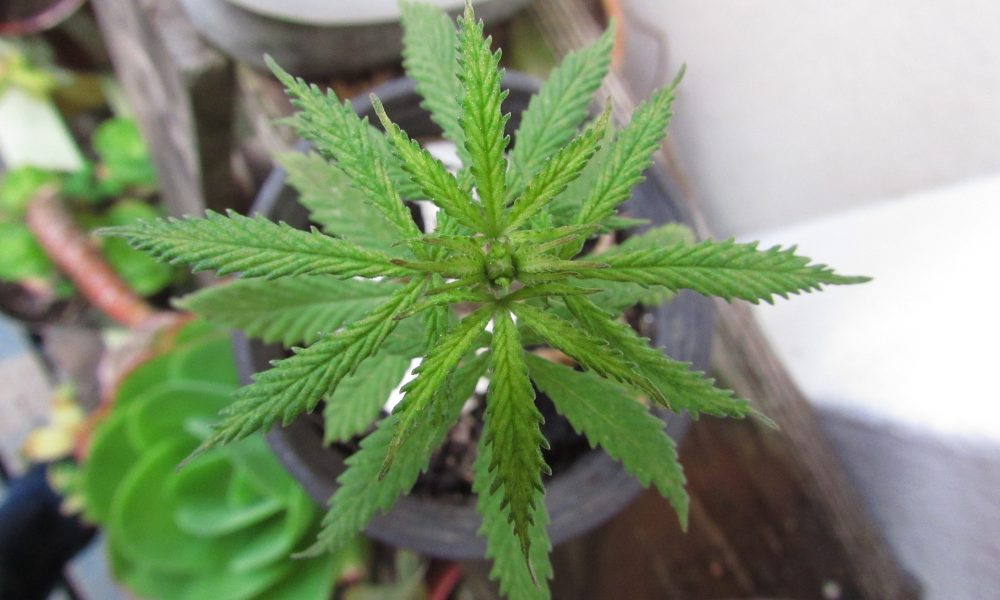A study published this month in the Journal of Neuroscience Research found that regular cannabis users “have a greater understanding of the emotions of others,” findings that authors say “highlight positive effects of cannabis on interpersonal relationships and potential therapeutic applications.”
The study, from a team of neurobiologists at the National Autonomous University of Mexico, compared measurements of empathy between a group of 85 regular cannabis users and 51 nonconsumers, using both a 33-item test and MRI images of the participants.
The written test, authors wrote, “analyzes the empathic ability of the subject, assessing both cognative and affective empathy.” That empathic ability is divided into specific areas or “subscales,” such as “the capacity to place oneself in the shoes of another” and “the ability to recognize other people’s emotions and impressions” as well as the abilities to feel or be in tune with others’ positive and negative emotions.
The study found that “cannabis users showed higher scores in the Emotional Comprehension scales” of the test, or those focused on the ability to recognize and understand others’ emotions. Differences observed between cannabis users and nonusers in other empathy subscales weren’t statistically significant.
Researchers said the results suggest a potential association between marijuana use and empathy, though they caution that further research is needed to fully understand the interactions “since many other factors may be at play.”
“The differences in psychometric scores suggest that users have more empathic comprehension.”
In attempting to explain the findings, the team of neuroscientists noted that a part of the brain, the anterior cingulate cortex (ACC) “is a region that is prone to the effects of cannabis consumption and is also greatly involved in empathy, which is a multicomponent process that can be influenced in different ways.”
“Given that the ACC is one of the main areas that possess CB1 [cannabinoid] receptors and is heavily involved in the representation of the affective state of others,” the study says, “we believe that the differences shown by regular cannabis users in the emotional comprehension scores and their brain functional connectivity, could be related to the use of cannabis.”
There are some caveats, the authors noted. For one, “we cannot discard that such differences were present before the users started their use of cannabis,” they said, acknowledging the study’s inability to show that cannabis use caused the difference. Further, the empathy question responses were self-reported and didn’t rely on “biochemical markers in conjunction with subjective reports.”
The marijuana used by participants in the Mexican study was also likely of lower THC potency than most products found at state-legal retailers in the United States. Authors said that “compared to the cannabis consumed in the US, the quality of cannabis consumed in Mexico is lower, containing approximately 2%–20% of THC on the illegal market.”
“These differences in THC concentrations between US and Mexican cannabis,” they noted, “could have a differential impact on functional brain outcomes between the present study and those reporting emotional dysfunctions in cannabis users,” pointing to studies from 2009 and 2016.
Despite the qualifiers, the study concludes, “given previous studies of the effect of cannabis on mood and emotional detection, we believe that these results contribute to open a pathway to study further the clinical applications of the positive effect that cannabis or cannabis components could have in affect and social interactions.”
In other neuroscience research this year, researchers at the University of West Attica in Greece found that medical marijuana use was associated with improved quality of life—including better job performance, sleep, appetite and energy—among people with neurological disorders.
Another recent study published by the American Medical Association found that medical marijuana was associated with “significant improvements” in quality of life for people with conditions like chronic pain and insomnia—and those effects were “largely sustained” over time.
Other studies have found cannabis may boost the “runner’s high” felt during exercise and enhance the practice of yoga.
Researchers Identify ‘Previously Undiscovered Cannabis Compounds’ That Give Marijuana Strains Their Unique Aromas
Read the full article here

